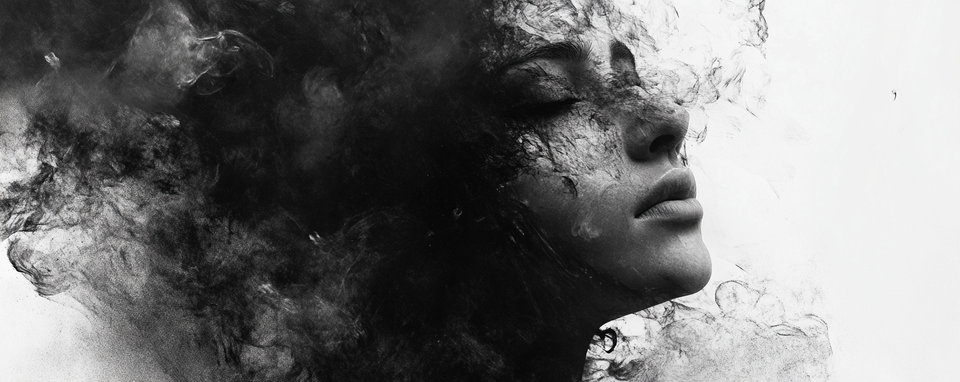From Special Snowflake to Shared Experience

You’re lying awake at 3 AM, your mind racing with worries that feel uniquely yours. The weight of your problems seems crushing, and you’re convinced no one else could possibly understand. Sound familiar? We’ve all been there, mate. But what if I told you there’s a simple mental trick that could help you navigate these moments of despair? Enter the concept of “I’m doing that thing.”
The Illusion of Negative Uniqueness
Let’s face it: we humans have a knack for thinking we’re special snowflakes, even when it comes to our struggles. We often fall into the trap of believing our suffering is somehow more profound or unique than everyone else’s. It’s like we’re the stars of our own melancholic indie film, convinced no one else could relate to our Oscar-worthy performance of misery.
This “negative uniqueness” is just an illusion. The ancient Stoics were onto something when they emphasised the universality of human experiences. Marcus Aurelius encouraged us to “look for patterns” in our thoughts and behaviours. He understood that recognising these patterns could lead to real-life improvements.
Reframing Our Thoughts
So, how do we put this wisdom into practice? It’s simple, really. Instead of wallowing in our uniquely terrible circumstances, we can start recognising the patterns in our thoughts and behaviours. It’s like playing “Spot the Difference” with your own mind, except all the pictures are the same.
Let’s take a closer look at how this applies to alcoholism. Instead of thinking, “I’m a hopeless drunk who can’t control myself,” try reframing it as “I’m doing that thing where I use alcohol to cope with stress.” This shift in perspective doesn’t excuse the behaviour but creates space for understanding and change.
Another example is that instead of criticising yourself with, “I’m the worst partner ever for getting angry,” try, “I’m doing that thing where I let my frustration get the best of me.”
This reframing isn’t about making excuses or letting yourself off the hook. It’s about recognising that these patterns of thought and behaviour are part of the human experience. It’s like joining a really inclusive club where the membership requirement is simply being human.
Benefits of This Approach
Now, you might wonder, “What’s the point of all this reframing malarkey?”
First off, it makes your experiences more relatable. When you can say to a friend, “I’m doing that thing where I reach for a drink when I’m feeling anxious,” you’re opening the door for connection and support. Suddenly, you’re not alone in your struggle; you’re part of a community working towards sobriety or better mental health.
Secondly, it reduces isolation and increases empathy. When we recognise that our struggles are shared, extending compassion to ourselves and others becomes more effortless; it’s like realising we’re all just actors in the same cosmic play, fumbling our lines and tripping over the props.
This approach also aligns beautifully with Stoic principles of acceptance and perspective. The Stoics were big on focusing on what’s within our control and accepting what isn’t. By recognising our patterns, we’re taking the first step towards changing what we can and accepting what we can’t.
Putting It Into Practice
How do we actually do this thing where we recognise we’re doing that thing? Here are a few tips to get you started:
- Become an observer of your thoughts and behaviours: Channel your inner David Attenborough and narrate your mental processes. “Here we see the wild mind, engaging in its habitual worry dance.” For those dealing with alcoholism, notice when you tend to drink, what triggers the urge, and how you feel before and after.
- Look for recurring themes: Do you always blame others when things go wrong? Do you tend to catastrophise minor setbacks? Do you always drink when you’re stressed? These are your patterns, my friend.
- Practice the “I’m doing that thing” phrase: When you catch yourself in a negative thought pattern or reaching for a drink, try saying, “I’m doing that thing where…” It’s like a mental reset button.
- Share with others: Don’t keep your newfound self-awareness to yourself. Share it with friends, family, or support groups. You might be surprised how often they respond, “Oh my gosh, I do that thing too!”
- Be patient and kind to yourself: Remember, the goal isn’t to eliminate these patterns overnight. It’s about recognising them and gradually working towards change. This is especially important when dealing with addiction.
As Epictetus, another Stoic heavyweight, suggested, sometimes the best way to break a habit is to “try the opposite”. So, if you’re used to beating yourself up over your patterns, try treating yourself with kindness instead. It’s a radical act of rebellion against your usual mental tyranny.
The Truth About Our Shared Humanity
As we practice this “I’m doing that thing” approach, we start to realise a profound truth: despite our differences in circumstances, we’re all remarkably similar in our internal experiences. The rich and the poor alike face restrictions and challenges. The educated and the uneducated can both make unreasonable decisions.
This realisation can be incredibly liberating. It’s like discovering that we’re all part of the same cosmic improv troupe, making it up as we go along. Sure, some of us might have fancier costumes or more lines, but at our core, we’re all just trying to figure out this thing called life.
Breaking Free from Rote Behavior
One of the most potent aspects of recognising our patterns is that it helps us break free from rote behaviour. How often do we do things simply because “that’s how we’ve always done them”? By becoming aware of our patterns, we allow ourselves to question them.
When it comes to alcoholism, breaking free from rote behaviour is crucial. How often do we drink simply because “that’s what we always do in this situation”? By becoming aware of our patterns with alcohol, we allow ourselves to question them and make different choices.
Are we reacting out of habit or making conscious choices? Are our patterns serving us or holding us back? These are the questions that can lead to real growth and change.
Final thoughts
So, there you have it, folks. The next time you find yourself spiralling into negativity, reaching for a drink, or engaging in behaviour you’re not proud of, try saying, “I’m doing that thing where…” It’s not a magic cure-all or a quick fix for addiction, but it’s a decisive first step towards self-awareness and change.
Remember, we’re all in this together, doing our things, making our mistakes, and hopefully learning along the way. So be kind to yourself, keep an eye out for those patterns, and maybe, just maybe, we can all get a little better at this whole being human — and sober — thing.
Now, if you’ll excuse me, I’m off to do that thing where I reward myself with a cuppa for finishing a task. Because some patterns are worth keeping, right?

Member discussion